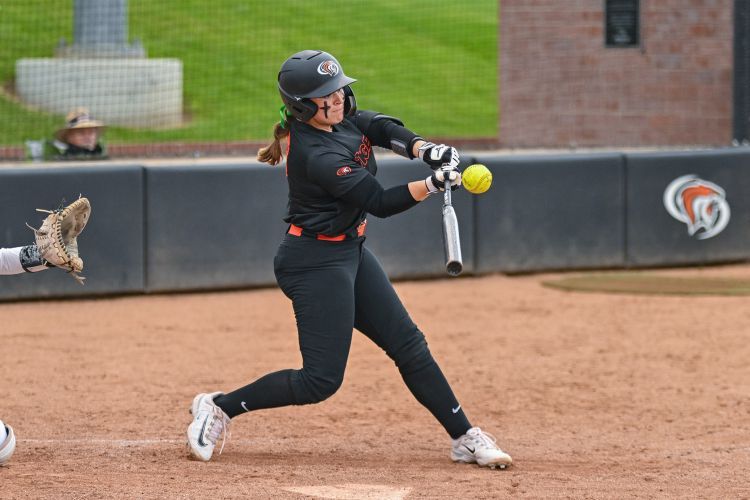Breadcrumb
From patient to student: Softball player's journey at Pacific comes full circle

Amanda Bricker
University of the Pacific softball’s Amanda Bricker ’26 was born genetically deaf. A former patient of the Pacific Speech, Hearing and Language Center, Bricker was inspired at a young age to pursue speech-language pathology in what she deemed a full-circle moment.
“I received cochlear implants at 18 months,” Bricker said. “You have to go through speech therapy to learn how to speak and work with them. One of the places I attended was the clinic here at Pacific.”
Bricker’s connection with the speech-language pathology program also comes at a more personal level. Her academic advisor, Associate Professor and Chair of Speech-Language Pathology Derek Isetti, was a graduate student at the time and observed her clinicals.
“It’s really neat to have a student who came here as a child and wants to pursue the same career that she was inspired by,” Isetti said.
Bricker, an infielder from Oakdale, California, is back on campus after transferring from California Baptist University. It was a decision she deemed a right fit because of her connection to campus and the speech-language pathology program.
“She is back here playing softball and in the same program that helped her. I find that truly amazing,” head coach Brian Kolze said. “She’s put her nose to the grindstone and has tried to accomplish anything and everything she can. She has never let anything hold her back.”
While sports are often a place of solace and finding strength and community for those with disability, that was never the case for Bricker.
“I didn’t do it to be a part of other people due to my disability; I just enjoyed playing,” she said. “People never knew that I was deaf until I said, ‘you have to talk facing me so I can read your lips. I can’t hear. I am deaf.’
“Softball was a place to get away from the other stressors of life. It’s not as difficult as people think when I am out there. Maybe when it is windy out, but I have always been able to rely on my teammates, where it's more physical communication versus verbal communication.”
It’s been a welcome learning curve for her teammates and coaches who all work to ensure that Bricker meets success.
“It’s different for me as a coach for the first time to have a deaf player,” Kolze explained, “You are learning every day how to communicate better and find out what works best. We’ve adjusted how we communicate to make it easier for her as a student-athlete, so she can continue to attain her goals both on the field as well as in the classroom.”
After she graduates from speech-language pathology, Bricker plans to pursue an advanced degree in audiology to help other children and parents navigate testing and diagnoses.
“I want to be an advocate for the patient and parents,” Bricker said. “I want to be that person to tell the parents it’s okay. I know when my parents found out I was deaf, they could have used somebody who said it was going to be okay.
“I feel like being that support system for the parents, sharing that I am deaf, that I went through school, I played college softball and now I am here as your child’s doctor is my calling, my God-given purpose, and I think it’s an amazing thing.”





